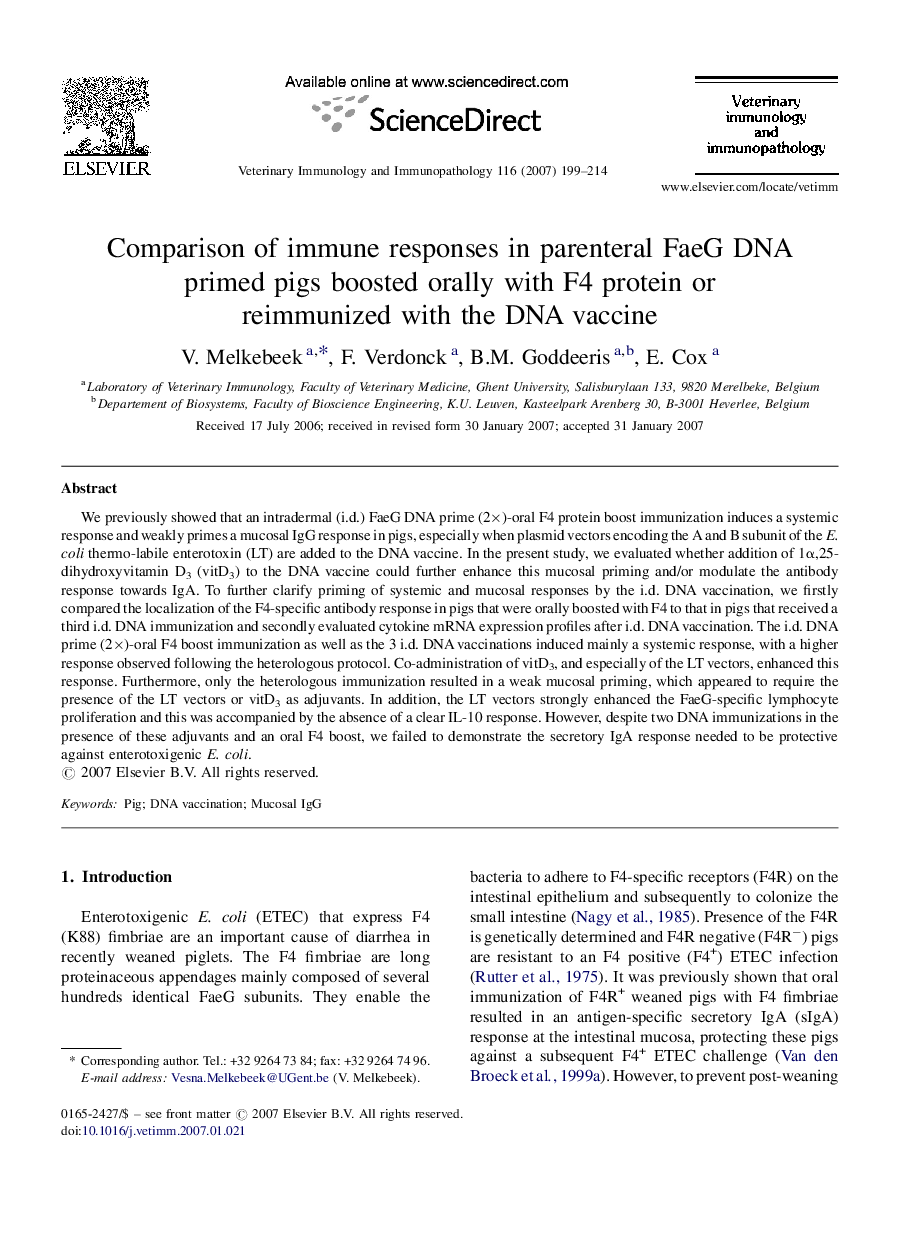| Article ID | Journal | Published Year | Pages | File Type |
|---|---|---|---|---|
| 2463273 | Veterinary Immunology and Immunopathology | 2007 | 16 Pages |
We previously showed that an intradermal (i.d.) FaeG DNA prime (2×)-oral F4 protein boost immunization induces a systemic response and weakly primes a mucosal IgG response in pigs, especially when plasmid vectors encoding the A and B subunit of the E. coli thermo-labile enterotoxin (LT) are added to the DNA vaccine. In the present study, we evaluated whether addition of 1α,25-dihydroxyvitamin D3 (vitD3) to the DNA vaccine could further enhance this mucosal priming and/or modulate the antibody response towards IgA. To further clarify priming of systemic and mucosal responses by the i.d. DNA vaccination, we firstly compared the localization of the F4-specific antibody response in pigs that were orally boosted with F4 to that in pigs that received a third i.d. DNA immunization and secondly evaluated cytokine mRNA expression profiles after i.d. DNA vaccination. The i.d. DNA prime (2×)-oral F4 boost immunization as well as the 3 i.d. DNA vaccinations induced mainly a systemic response, with a higher response observed following the heterologous protocol. Co-administration of vitD3, and especially of the LT vectors, enhanced this response. Furthermore, only the heterologous immunization resulted in a weak mucosal priming, which appeared to require the presence of the LT vectors or vitD3 as adjuvants. In addition, the LT vectors strongly enhanced the FaeG-specific lymphocyte proliferation and this was accompanied by the absence of a clear IL-10 response. However, despite two DNA immunizations in the presence of these adjuvants and an oral F4 boost, we failed to demonstrate the secretory IgA response needed to be protective against enterotoxigenic E. coli.
